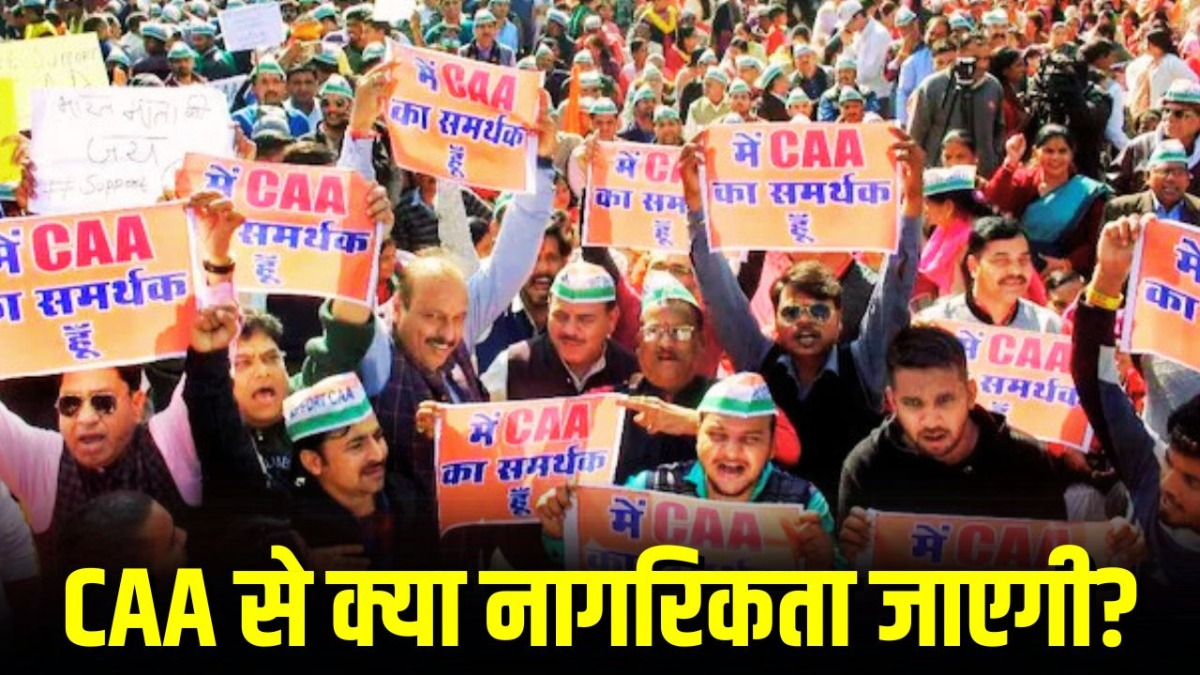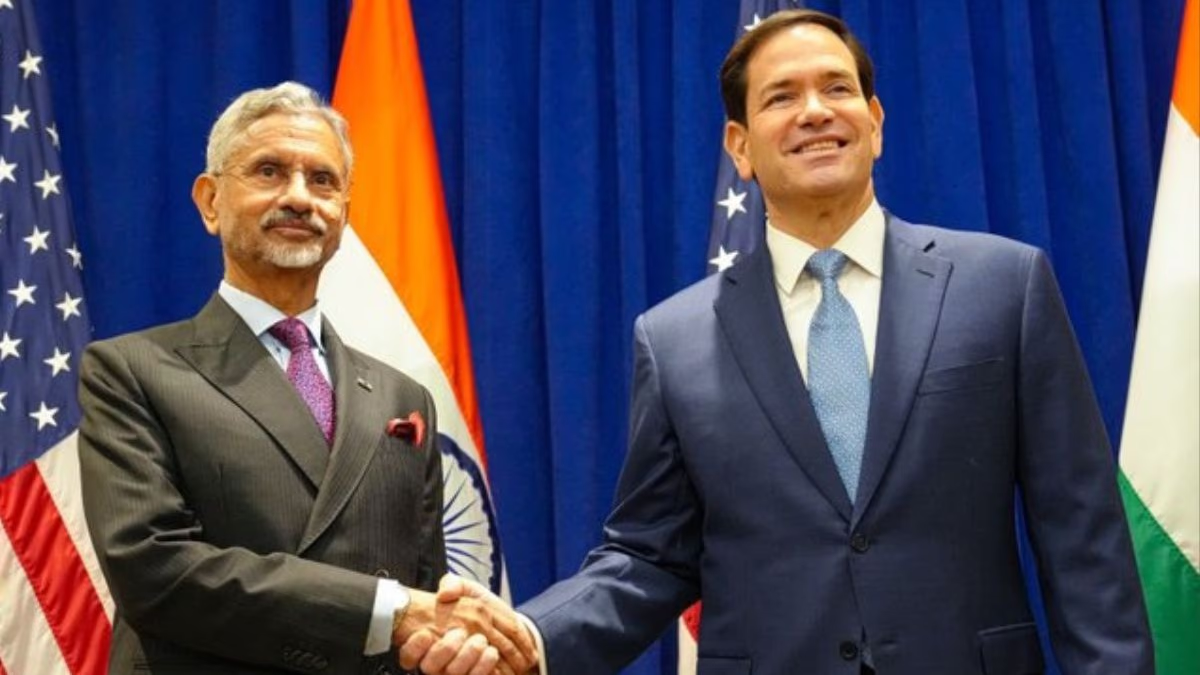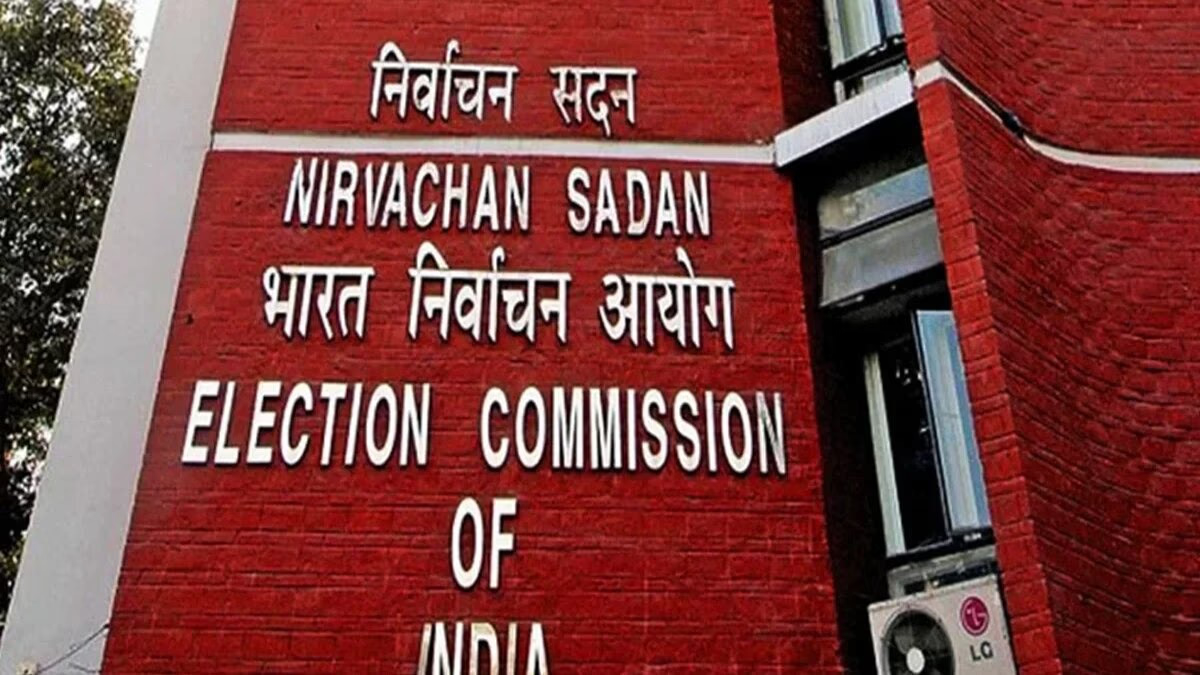The Citizenship Amendment Act (CAA) has been implemented in the nation. Under this, the way has been cleared for non-Muslim refugees (Hindus, Sikhs, Buddhists, Jains, Parsis, Christians) from the neighboring countries of Pakistan, Bangladesh, and Afghanistan to obtain Indian citizenship. The Muslim community, however, has been excluded, feeling a sense of discrimination. Nevertheless, the government argues that in these three countries, Muslims are the majority. Whereas the 6 non-Muslim communities brought under the scope of CAA are minorities there and face religious persecution, leading them to settle in India years ago.
Yet, it's not that Muslims from these neighboring countries don't have the provision to acquire Indian citizenship. Compliance with necessary conditions and rules is mandatory.
Let's uncover the regulations surrounding Indian citizenship...
'On Eligibility Fulfillment, Indian Citizenship Will Be Granted'
Under CAA, Muslims from the three countries may not apply for Indian citizenship, but they can claim it under the old laws. Foreign nationals must take the help of these previous laws to gain Indian citizenship. Moreover, it was through these preexisting laws that singer Adnan Sami obtained Indian citizenship in 2016. The Ministry of Home Affairs also informed that in the last six years, about 4,000 individuals from Pakistan, Afghanistan, and Bangladesh have been awarded Indian citizenship, including hundreds of Muslims. The government declared that such refugees who meet the eligibility criteria will continue to receive Indian citizenship and that CAA does not target any foreign religious community.
Read more:
How Can Foreign Muslims Acquire Indian Citizenship?
Legal provisions for obtaining Indian citizenship are outlined in the Citizenship Act of 1955. According to this, any person residing in India for 12 years and has continuously lived in India for a year prior to the application, in addition to having spent a total of 11 years in India, can lay claim to Indian citizenship. Furthermore, the individual should meet the qualifications specified in the third schedule of the Citizenship Act. Home Minister Amit Shah also stated in Parliament that Muslims from Pakistan, Bangladesh, and Afghanistan could apply for Indian citizenship as per previous laws, revealing that around 566 Muslims had been naturalized this way in recent years.
What Other Provisions Exist for Indian Citizenship?
- Individuals born in India on or after January 26, 1950, and before July 1, 1987, are Indian citizens, irrespective of their parents' nationality. - From July 1, 1987, to December 2, 2004, any person born in India whose parent(s) were Indian at the time of birth will be deemed an Indian citizen. - After December 3, 2004, any child born in India where both parents are Indian citizens or at least one is an Indian citizen and the other not an illegal immigrant will also be an Indian national. - Indian citizenship can also be acquired via registration. A person of Indian origin residing in India for at least 7 years can obtain citizenship through registration. - A person married to an Indian citizen and residing in India for at least 7 years prior to the registration application can also acquire citizenship through this process, including their minor children who are Indian citizens.
Also read: CAA Protests Spread Across Assam Today as 30 Organizations Take to the Streets; District 144 Imposed in Some Areas
Foreign Nationals Often Visit India on Tourism and Religious Visas
Most non-Muslim citizens from Pakistan and other countries come to India on religious or tourist visas and choose to settle here. Such individuals also apply for citizenship. However, in the absence of granted citizenship, they are left in precarious limbo, unable to return to their homeland due to expired visas and passports, nor can they access the rights and benefits provided in India due to the lack of citizenship.
Collection Authorizations Granted to Collectors of 9 States So Far
In 2004, the Central Government empowered the collectors of Gujarat and Rajasthan and the Government of Gujarat to grant citizenship related to displaced Hindus or Hindu refugees who arrived from Pakistan five years prior due to the wars of 1965 and 1971. In the last two years, collectors and home secretaries in more than 30 districts across 9 states have been authorized to confer Indian citizenship on non-Muslim communities from the three countries under the Citizenship Act of 1955. The Home Ministry reported that from April 1, 2021, to December 31, 2021, 1,414 non-Muslims from these countries were naturalized as Indian citizens.
'Who Will Get Indian Citizenship Under CAA?'
The government said that Muslims, being the majority in these neighboring countries, would continue to be granted Indian citizenship if they fulfill the eligibility conditions for registration or naturalization provided previously in the law. According to CAA, individuals connected to Hindu, Sikh, Buddhist, Jain, Parsi, and Christian communities from Pakistan, Bangladesh, and Afghanistan who arrived before December 31, 2014, will be eligible for Indian citizenship. Previously, those who entered India illegally were not granted citizenship; they were either sent back or detained.
Read more: Government Set to Form an Empowered Committee at the District Level Under CAA for Citizenship Decisions
'4.61 Lakh Tamils Granted Indian Citizenship'
Under Article 6 of the Indian Constitution, any person who migrated from Pakistan to India before the 19th of July 1948 is considered an Indian citizen. Additionally, those who arrived after this date and were registered as Indian citizens after staying for only six months would also be considered. From 1964 to 2008, approximately 461,000 Tamils of Indian origin were granted Indian citizenship. Currently, around 95,000 Sri Lankan Tamil refugees reside in Tamil Nadu, receiving rations, grants, and other amenities from central and state governments.
The Reason Behind Muslim Opposition
The opposition claims that the Muslim community is being targeted. They argue that without valid documentation, others may be given shelter, while the Muslims are deliberately declared illegal. The largest concern opposing the Citizenship Amendment Act is this perception. Opponents of the law describe it as anti-Muslim, questioning why citizenship is being granted on a religious basis and why Muslims are not included. The government's counterargument is that Pakistan, Bangladesh, and Afghanistan are Islamic nations where non-Muslims are persecuted for their religious beliefs, leading to their exodus to India. Therefore, non-Muslims only have been included in CAA.




